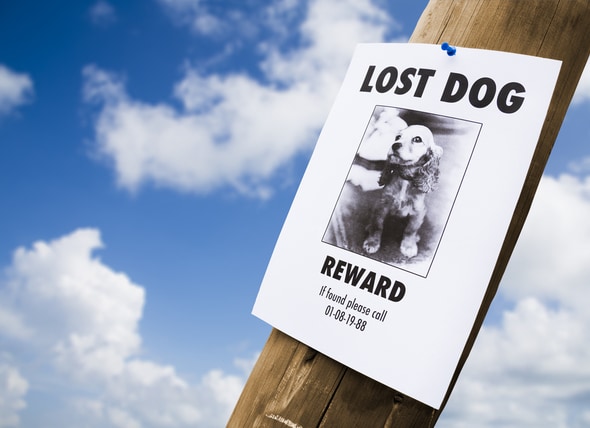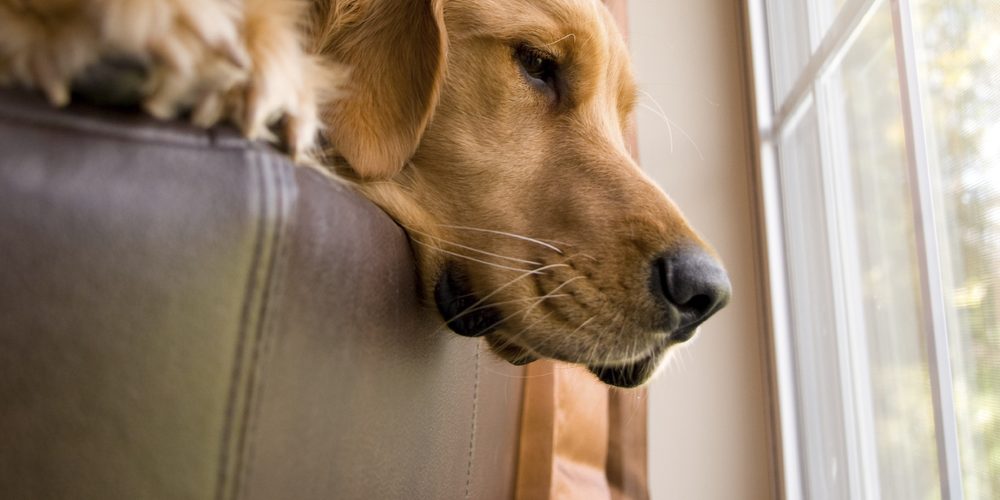
Summer vacations with the family are a delight, but often, we will leave our furry friends at home. This is usually due to cost, inconvenience or having a pet that may be too anxious to travel.
But if yours is a pet who would prefer to vacation with you, traveling with dogs will undoubtedly enhance your experience. But what happens if your dog gets lost while you’re out on a vacation activity? Try these tips for how to reduce the chance of losing your pup and how to find a lost dog while you’re on vacation.
Review Basic Obedience
Does your dog need a refresher course in basic obedience? New, exciting locations can be very distracting for dogs, so make sure you have reinforced basic commands like sit, stay and come before your trip starts.
Teaching your dog to come when called, no matter where he is or what is going on around him, is one of the best ways to prevent him from becoming lost in the first place.
Check Tags and Collars Before You Leave
Before you travel anywhere with your dog, you’ll want to make sure they have proper identification in place in case they get lost. This will help make retrieving your lost dog much easier.
Your best friends in the case of a lost dog are his dog ID tags and dog collar. Double-check before leaving that your dog’s tags are up to date. If you know the addresses and phone numbers of the places you will be staying at, you can create temporary tags for your pet with that information. In a pinch, you can simply use a permanent marker to write your cell phone number on webbed collar.
A dog collar is no good, however, if it is old, loose or frayed. It should be snug, but not so snug that you can’t fit two fingers under easily. If the collar can slip over their head even when it is snug, then consider purchasing a buckled martingale collar for your dog, as this style makes it harder for the collar to slip over the head.
Microchip Your Pet
If your pet isn’t microchipped already, a vacation is the perfect incentive to get that done. If he does get out or away from you, and if someone else picks him up, any veterinarian office—and most police and animal control offices—will have a scanner to check for the microchip.
This can help you reunite with your pet more quickly, but only if the microchip company has your up-to-date contact information. So, if it’s been a few years since your pet was microchipped, check before leaving home that this information, like the pet’s collar tags, is accurate.
Print a Lost Pet Flyer
If you have any recent photos of your pet, bring them with you. You should also have a good quality photo of him/her on your phone. These will come in handy in case he/she gets loose on vacation.
You should find a place to print a lost pet flyer and distribute it around the town you’re visiting. You can also create a digital lost pet flyer, which you can share on local social media channels, by downloading and using the ASPCA’s free pet safety app.
Visit Local Businesses and Shelters
Bring your flyers to local pet stores, animal shelters and veterinary offices, and get to know the employees there as best you can. If a stranger finds your lost pet and can’t contact you for whatever reason, these are the places they’re most likely to bring him.
Check in with the local shelter regularly to make sure that they don’t forget to keep an eye out for your pet. Shelters receive a lot of missing pet notifications, so you must be polite but persistent to keep your pet in the forefront of their minds.
Additionally, shelter managers may be able to put you in touch with local volunteer groups that help track down lost pets. These contacts will be valuable in case your pet doesn’t turn up before it’s time for you to go home.
Leave Your Pet’s Favorite Things Behind
Lost pets may be nervous, and nervous pets may be reluctant to wander around unfamiliar areas in broad daylight. Leave your pet’s favorite items, or clothing and other items that smell like you or your home, at the site where you last saw your pet, or with someone who has volunteered to help locate your animal in your absence.
Check Social Media
Social media is a great resource to stay in touch with local residents and businesses to try to find your pet if you have to leave the area.
Additionally, many towns and cities may have lost pet boards or groups online where news and pictures can be posted (both from owners of lost pets and strangers who find lost pets). Find out from your local contacts if there’s anything that may assist you on this front.

